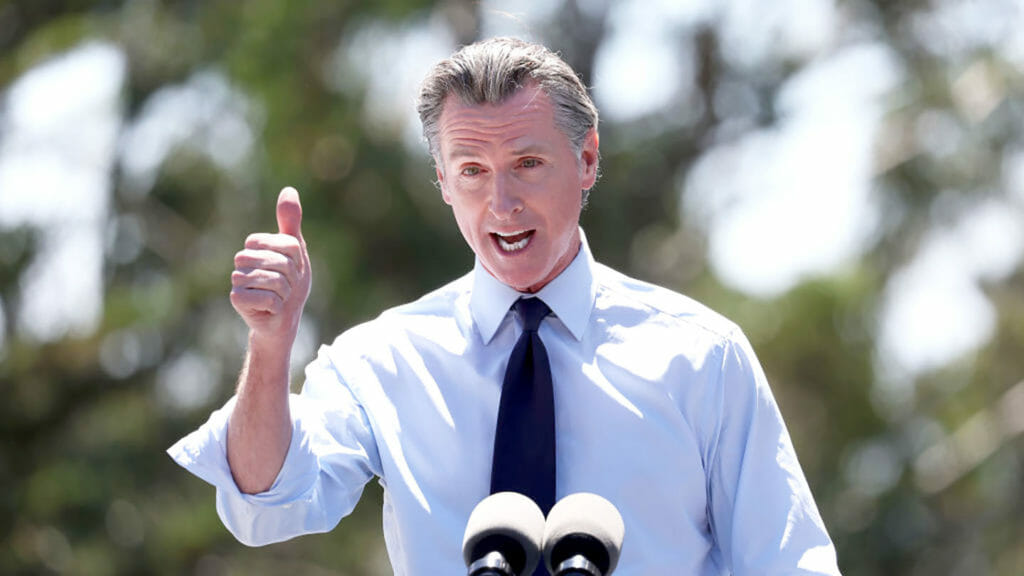
Several pieces of legislation affecting senior living operators recently were signed into law in California, whereas other bills tied to the industry were vetoed by Gov. Gavin Newsom (D).
The governor signed bills related to the COVID-19 pandemic, the long-term care ombudsman, and emergency and disaster planning. He vetoed two bills related to referral agencies and dementia care navigation training services.
Bills extend COVID-19 requirements
Assembly Bill 152 extends an employer requirement to provide COVID-19-related supplemental paid sick leave through Dec. 31, amends the standard for when employees use sick leave, and creates a grant program to help small business and nonprofits with those related costs.
The state initially required companies with 26 or more employees to provide COVID-19-related paid sick leave through Sept. 30. The bill extends that provision through the end of the year.
Local supplemental paid sick leave ordinance remains in effect in Long Beach, Los Angeles, Los Angeles County and Oakland. Also, San Francisco has a new ordinance that went into effect Oct. 1 affecting companies with 100 or more employees.
The amended law also allows employers to require workers who test positive for COVID-19 to take a diagnostic test on or after the fifth day and to provide documentation of the test results. If the test is positive, then the employer also may require that the worker submit to a second diagnostic test within 24 hours.
In addition, employers can deny supplemental paid sick leave to a worker who refuses to submit to a diagnostic test.
Private employers and nonprofits with 26 to 49 employees also may be eligible for a grant of up to $50,000 to cover costs incurred in providing supplemental paid sick leave for employees who are COVID-19-positive.
Meanwhile, Assembly Bill 2693 extends a law requiring employers to post notices related to COVID-19-related exposure in the workplace. The existing law was set to expire Jan. 1, but the new bill extends the requirement through Jan. 1, 2024.
Specifically, employers must post the dates and location of exposure of a confirmed case of COVID-19. Companies also must provide information regarding COVID-19-related benefits to which employees may be entitled, as well as steps the employer took to clean and disinfect the workplace.
Educating residents on the ombudsman
In other news, AB 895 requires notices to prospective residents in residential care facilities for the elderly, as well as skilled nursing and intermediate care facilities, regarding the local long-term care ombudsman.
The bill requires the notice to include a statement that the ombudsman is intended as a resource for additional information regarding resident care at a facility and for reporting resident complaints.
Tracking emergency and disaster plans
Another bill signed into law, AB 1855, reaffirmed the Long Term Care Ombudsmen’s authority to enter residential care faciliteis for the elderly and skilled nursing facilities, in accordance with any applicable public health or related emergency orders.
Vetoed bills
Among the bills that Newsom vetoed were AB 499, which would have imposed requirements on referral agencies to residential care facilities for the elderly, including disclosures, background checks and liability insurance.
In vetoing the bill, Newsom said he was concerned that it would reduce consumer options. He directed the California Elder and Disability Justice Coordinating Council within the California Health and Human Services Agency to work with Assemblywoman Blanca Rubio (D-Baldwin Park) on a revised bill that provides “more equitable consumer protections.”
California Assisted Living Association President and CEO Sally Michael said she was disappointed the bill was vetoed.
“AB 499 was a first meaningful step to regulating an unregulated referral industry, and we will continue to participate in conversations to provide consumer disclosure and transparency,” Michael told McKnight’s Senior Living.
The governor also vetoed SB 861, which would have established the Dementia Care Navigator Grant Pilot Program within the California Department of Aging. The goal was to incentivize organizations to provide dementia care navigation training services.
In vetoing the bill, Newsom said that parts of the proposed measure were included in the 2022 Budget Act, which contained $281.4 million to train health workers to provide dementia care navigation. He also indicated that the state Department of Health Care Access and Information would work with stakeholders to develop and implement the community health workers program that was funded by the Budget Act.
“We will continue to work with the Alzheimer’s Association in support of policies that improve the wellbeing of Californians impacted by Alzheimer’s,” Michael said.
Read other state news here.




